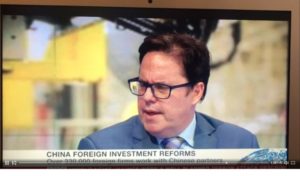
Cosmetics sold in China require up to May 1, 2021, animal tests to prove they are safe for consumers. Since their users required cruel-free cosmetics, foreign manufacturers had a hard time selling cosmetics to Chinese consumers. But times are changing, although only a little, says China-lawyer Mark Schaub in the China Law Insight in a review of upcoming legal change.
Mark Schaub:
It is good news for animals. From May 1, 2021 international cosmetics companies can apply to sell ordinary cruelty-free cosmetics in mainland China through general import and general trade.
In a best case scenario this will open up the opportunity for distribution through physical stores or distributors (which despite the hype about online remains crucial in China). These cruelty-free brands will be able to be sold in physical stores in China after being registered/filed to NMPA and imported via general trade according to the Provisions.
Online sales will also change. At present cruelty free brands are effectively excluded from the mass online market (i.e. can only sell T-Mall Global rather than T-Mall). In our experience, consumer facing companies will sell far more on T-Mall than on T-Mall Global. Indeed international brands can establish their own shopping websites in China to sell products directly.
Another change may be in respect of the outsourcing of production to China. In recent years a number of international cosmetics brands transferred part of their manufacturing process to China in order to manufacture under a limited animal testing exemption which could be applied for in respect of domestically manufactured ordinary cosmetics. This change in regulation may make such practice less attractive.
Although Chinese cosmetics brands are becoming increasingly popular but the heritage of cosmetics can play an important role in the consumer’s relationship to a product. However, we anticipate that the roll out may be time-consuming and much will depend on the land of origin and the status of its negotiations with the Chinese authorities.
International cosmetics companies will embrace the ability to export cosmetics to China without animal testing. However, it is important to note that this loosening is coupled with increasingly strict regulations, introduction of a trusted manufacturer concept, improved health and safety standards and also an expanded role and potential liability for the domestic representative. Importing cruelty free will now be possible but it will be coupled with greater obligations and paperwork.
In addition, it should be noted that a crucial issue is that the recognition of the QMS is on a bilateral basis between China and the relevant manufacturing country. This may mean that brands may need to outsource manufacturing to countries that are recognized. This may be an issue for countries that are politically out of favor with China. Time will tell but it is likely that for international cosmetics companies will find that they will not need to test on animals for most products whether exported to China or domestically manufactured.
More in the China Law Insight.
Mark Schaub is a speaker at the China Speakers Bureau. Do you need him at your (online) meeting or conference? Do get in touch or fill in our speakers’ request form.
Are you looking for more experts on managing your China risk at the China Speakers Bureau? Do check out this list.

